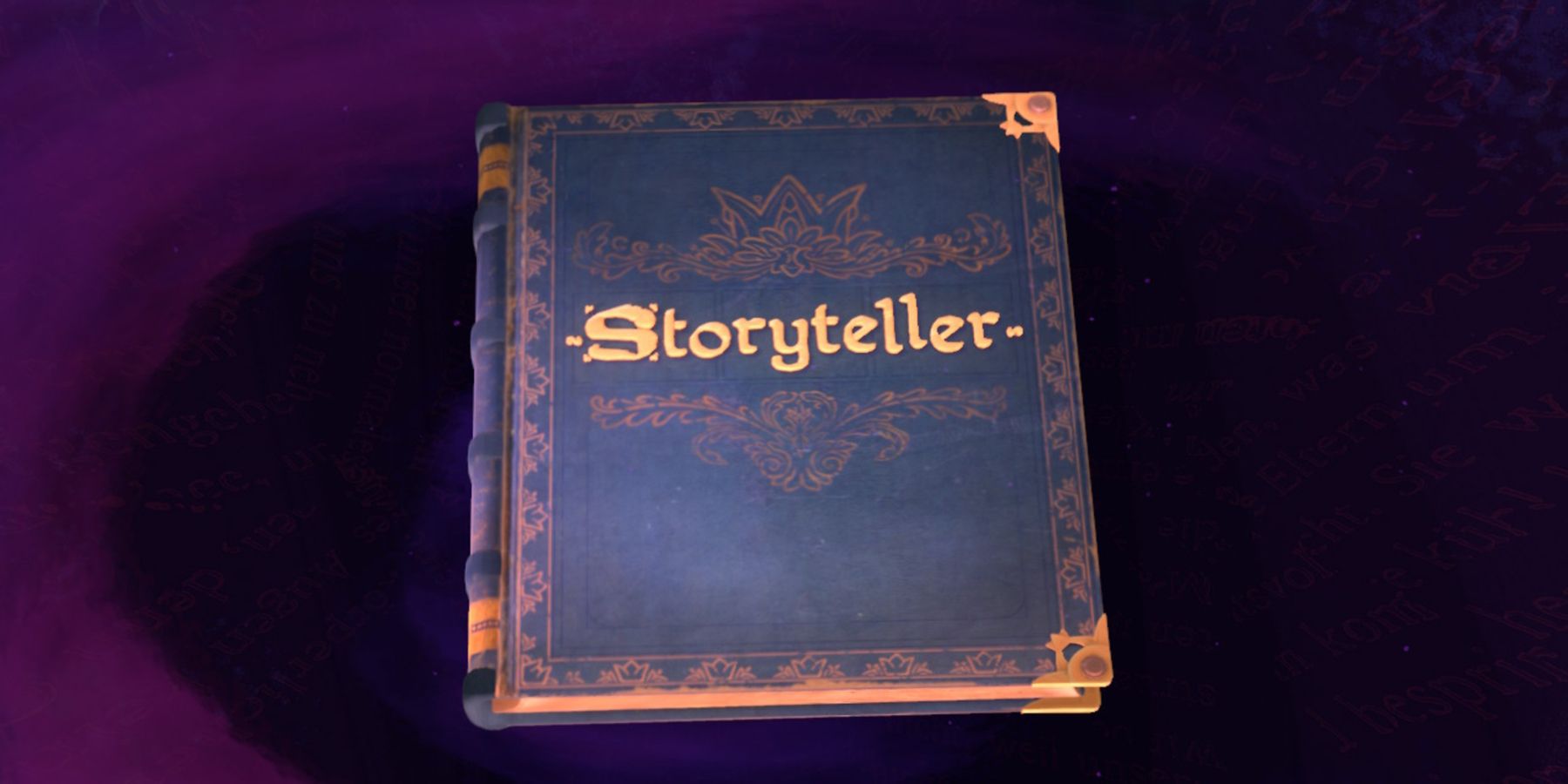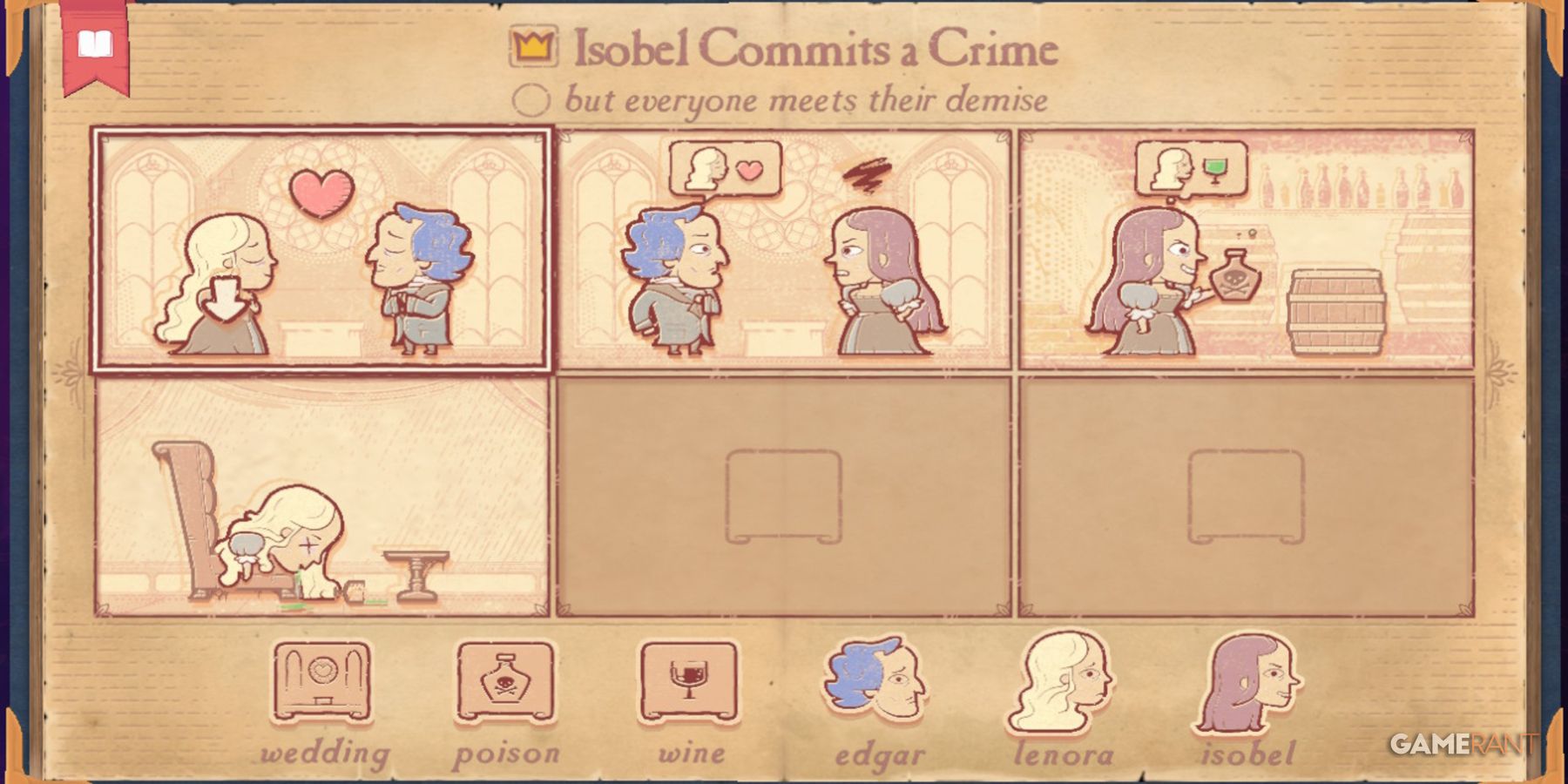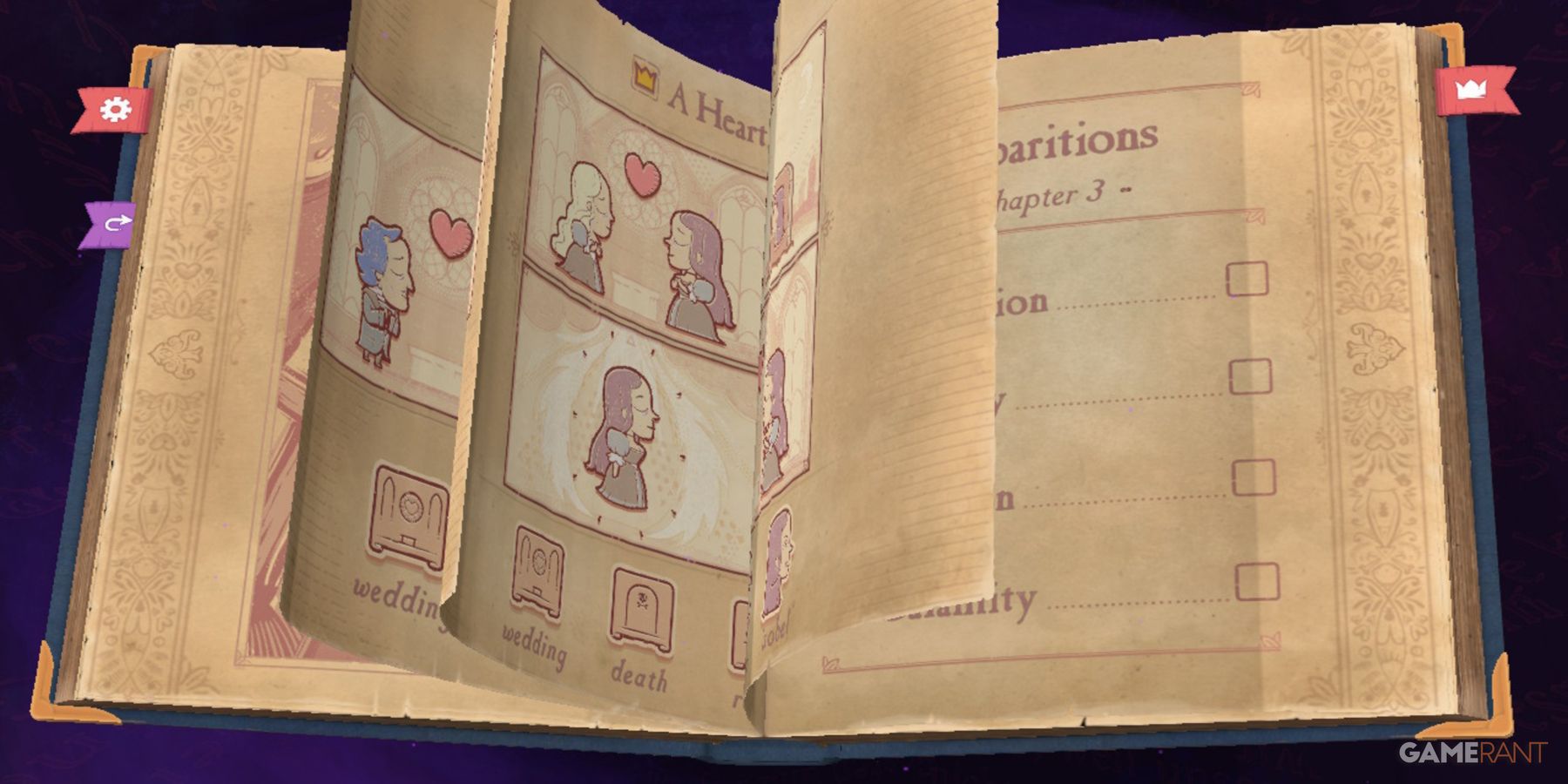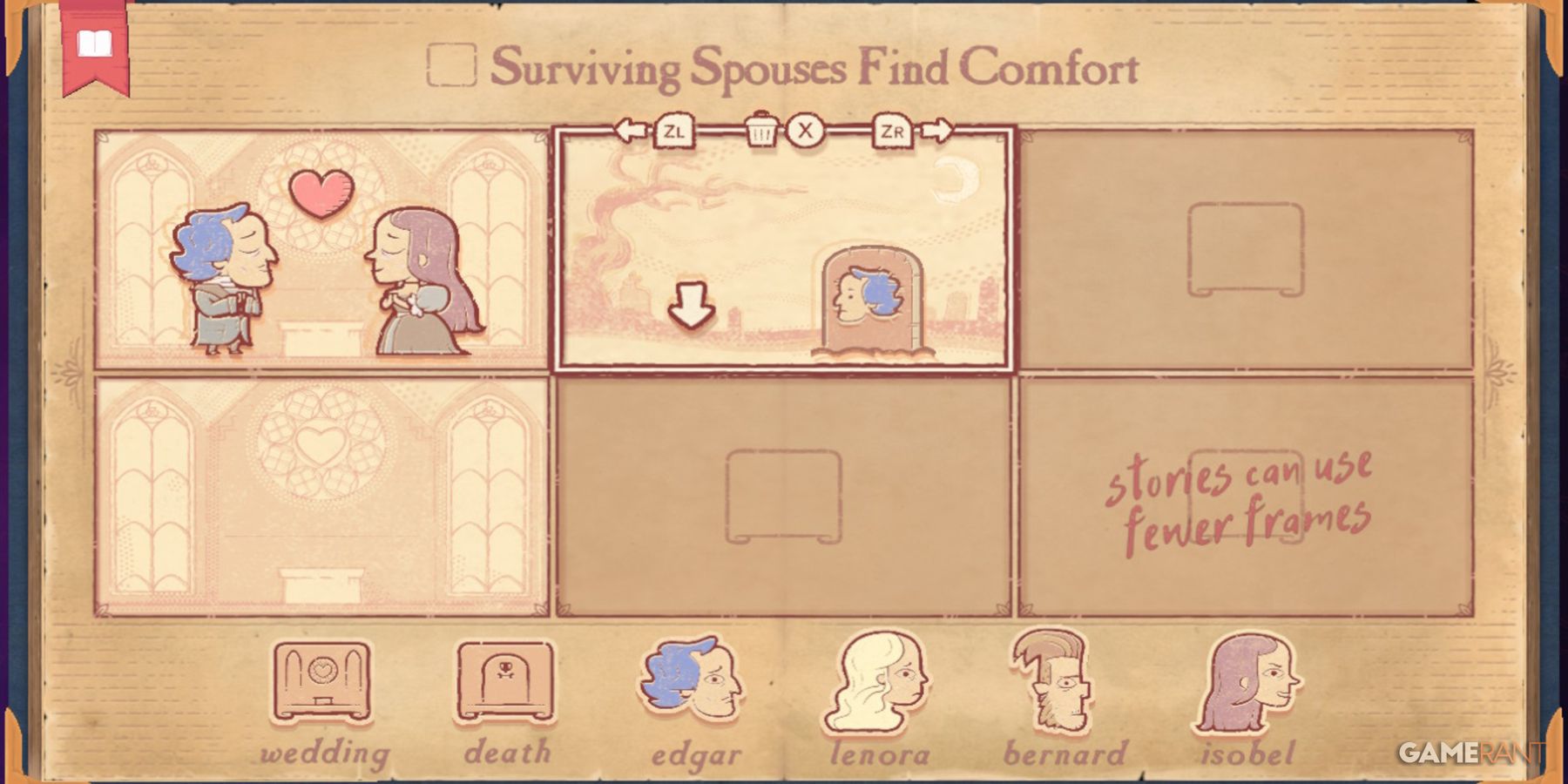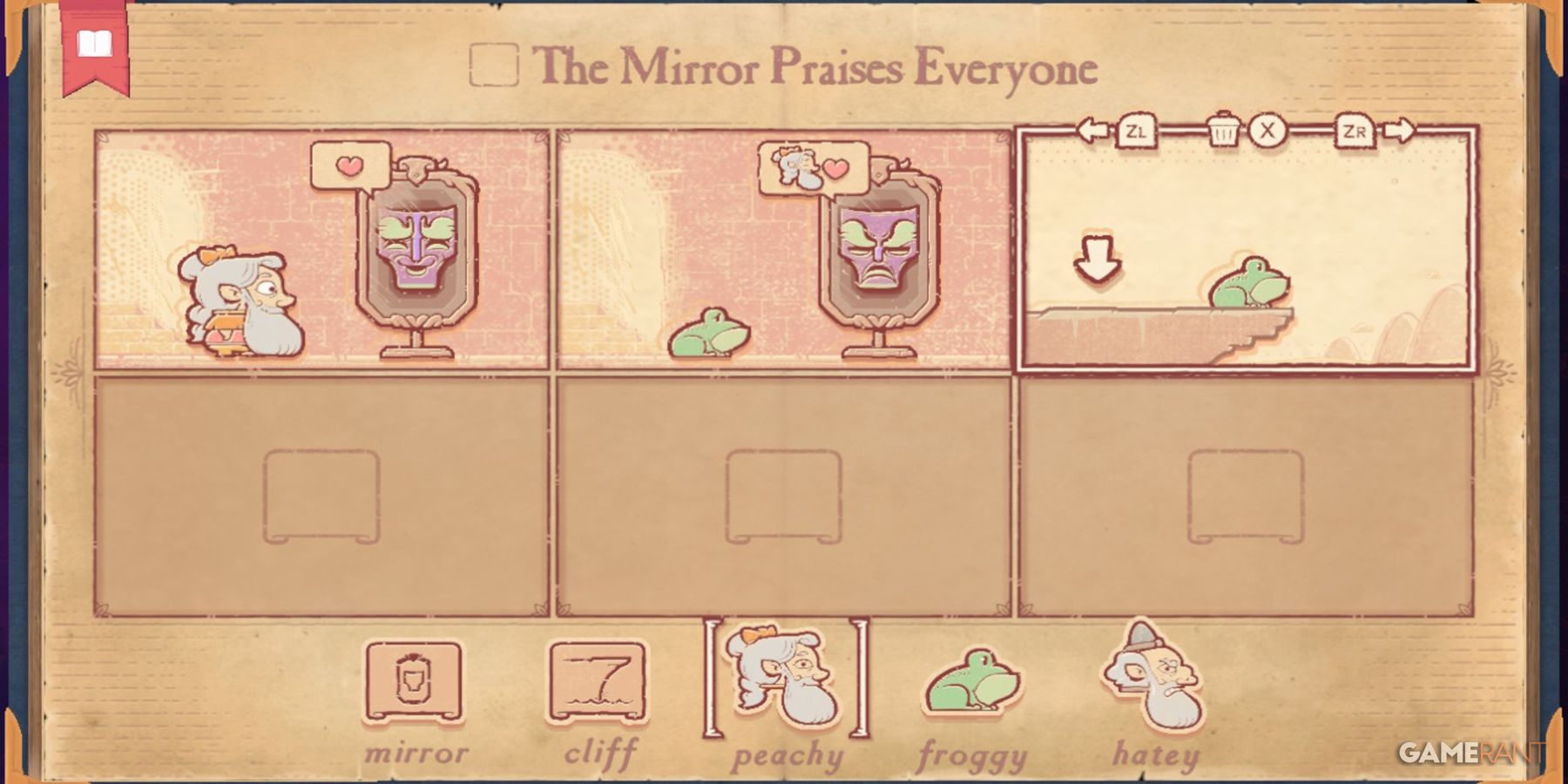Most stories in video games tend to be focused around either grand adventures that span entire worlds, or smaller and more focused stories that might only take place in a single house. Then along comes a puzzle game like Storyteller that instead, wants players to craft the stories themselves. Even though it is a decidedly short experience, there is a certain amount of joy to be found in Storyteller's simple design.
Created by developer Daniel Benmergui (creator of Today I Die and I Wish I Were the Moon) and consisting of 13 chapters with four puzzles in each, Storyteller tasks the player with creating a short story by placing various backgrounds and characters in their correct locations to create a tale. The game gives users a prompt to work off of, such as a character facing rejection, committing a crime, showing how someone might accidentally marry a parental figure, etc. Each background set piece changes how everyone interacts and characters will also change their actions and feelings based on their positions set within the scene. Each puzzle has 3, 4, 6, or 8 frames in which players can create the prompted story, although some don’t require using every frame to successfully finish it. It almost feels like a storyboard coming to life, and Storyteller makes good use of the concept.
It is always arduous to judge the difficulty of puzzle games. Players come from all walks of life, with wildly varying experiences that help shape who they are and how they meander or force their way through problems. However, if someone was forced to define how difficult the puzzles in Storyteller are, they would likely describe them as leaning more toward the easy side rather than the difficult side. But whether this is due to the game targeting a younger player base or being purposefully made easy is difficult to say. Players looking for a hefty or brain-crushingly difficult challenge likely won't find it here.
Most of the puzzles start off with the answer and the user has to figure out how the scenes unfold to arrive at the prompt. For some, the switching between working backward but laying the story out in the correct order will be easy, while others might be left scratching their head in confusion. Any bafflement, though, will likely be short-lived after learning how to manipulate the character's feelings by setting them down and using simple trial-and-error to learn what influences actions and moods. What occurs in the previous frame will affect every frame afterward, and this can lead to some obvious answers even before deciding what backgrounds to use. Some puzzles use the same characters from previous chapters, and backgrounds almost always create the same results based on where the characters are placed, so once players learn those aspects the game becomes much easier.
There are enough options in the harder puzzles that attempting to brute force them by trying every different combination would take entirely too long. Hence, the quicker a player learns the cause and effects of certain placements, the easier time they will have. This is especially true with puzzles that have multiple ending options like a situation where instead of a specific character being killed, their attacker is supposed to die. Most of these extra endings actually require rewriting some of the scenes entirely or moving them around instead of simply replacing characters. There are unfortunately too few of these, as they aren’t contained in every chapter. It would have been more entertaining in the pursuit of completing 100% of the game to have more of these, with more increased difficulty.
Graphically, the various characters and backgrounds are pleasing to look at and complement the systems within. The character cutouts are crisp, clean, and intelligible. Character animations are neat, and their expressions are easy to read, so there isn’t any confusion as to what they are feeling. The background panels are shaded nicely but don’t offer incredibly high levels of detail. This does help with being less distracting when placing characters, but some pages can feel a little lackluster when viewed repeatedly. It can also feel like there is a lot of empty space around the story panels, which can sometimes remove a player from feeling like they’re in a book. Blank areas aren’t necessarily bad by themselves, but sometimes empty space can steal some of the focus.
Some players will definitely be annoyed at how short Storyteller is, especially with its price tag. Be it a product of gamers' insatiability for more content, or the expectations set by other games, many will be expecting it to last longer than it will. Hopefully, developer Daniel Benmergui and publisher Annapurna Interactive have plans to increase the number of puzzles available at some point in the future since currently, it isn’t all that unfeasible to finish the game in a day or two.
The last sour aspect of Storyteller is its ending. It is difficult to dig into the issues players will have with it without heading into spoiler territory, but suffice it to say, it’s disappointing. Maybe that disappointment is a product of expectations set by other games, but there was a sense while playing that it was leading up to more than what actually occurs. Some users will undoubtedly be annoyed by the conclusion, while others will simply shrug and move on. There also currently doesn’t seem to be a reason to go back and play again other than to complete the various puzzles that have different, optional answers.
One of the best feelings in puzzle games is that ‘Ah-ha!’ or ‘Ohhhh!’ moment when a solution that seems obvious but continually remains elusive, suddenly becomes evident. Storyteller has these moments, but altogether entirely too few of them. It tries so gallantly to keep that feeling, but it ultimately stumbles due to its short length, disappointing ending, and low difficulty. Still, there is enough charm to the game that some will seek to complete the stories that Storyteller wants to tell.
Storyteller launches on March 23 for the PC and Switch. Game Rant was provided a Switch code for this review.

